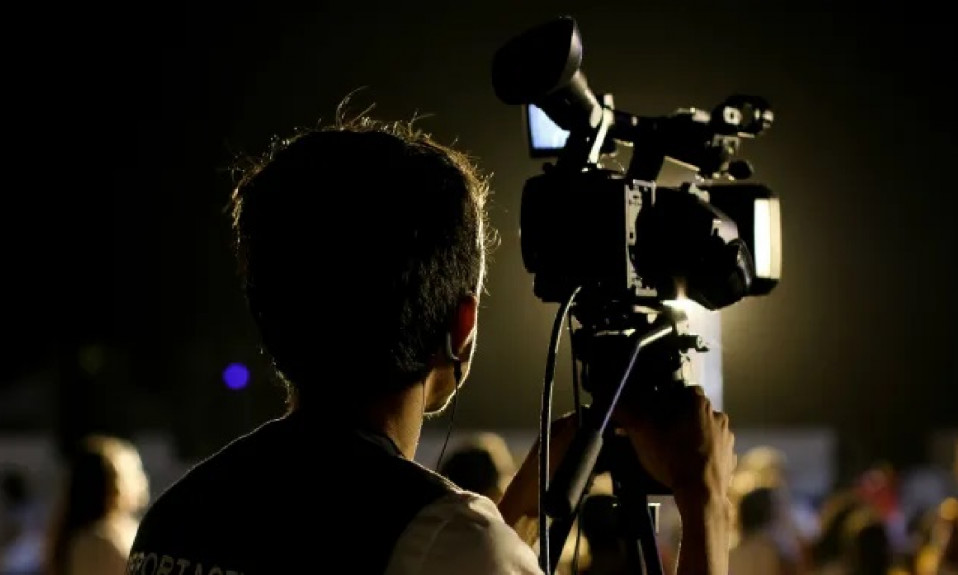The mental health of film and TV workers has been a huge concern for a while. But what is the current picture of mental wellbeing in the industry? To answer this today we will look over the recently published Looking Glass survey. We will summarise the survey’s aims, what the findings say about the industry and what areas need improvement going forward.
The Study’s Aims
The second Looking Glass survey was conducted in 2021 by Brightpurpose on behalf of the Film and TV Charity. The charity focuses on promoting diversity and inclusivity within the industry. As well as helping people facing financial hardship and promoting physical, mental, and social wellbeing.
In 2019 the first Looking Glass survey was conducted. It investigated how mental health problems within the media industry compared to national levels. As well as how workers could be supported, and what aspects of the industry posed the biggest challenges to the management of workers’ mental health. The 2021 survey continued this research by looking into how the COVID-19 pandemic and other underlying industry issues e.g. racism, affected industry practitioners.
Key Findings
One of the report’s encouraging findings was that despite the two-year gap and the impact of the pandemic the industry’s wellbeing score (19.3) and the number of people who reported having “good” or “very good” mental health (32%) has remained largely unchanged from 2019s survey (wellbeing score – 19.4 and 35% reporting “good” or “very good” mental health). There is even growing optimism that the industry is starting to move toward positive change regarding workers’ mental healthcare. Certainly good news. However, the report also contains some concerning statistics.
78% of 2021s survey respondents said that the workload intensity common in the industry had negatively affected their mental health. A jump from 63% in 2019. 46% of participants also said that working under covid restrictions badly impacted them. Covid restrictions limited the amount of socialisation permitted during filming, as well as cutting many workers off from the support of family or friends. Which made work less friendly. And workers were less able to get emotional support from sources outside of work.
57% also experienced some form of abuse in the 12 months prior to the survey. Including bullying, sexual and racial harassment, or discrimination. All of which have serious consequences on a person’s mental comfort. 39% of Black, Asian, and minority ethnic respondents reportedly experienced racist abuse in the past year. This caused 43% to consider leaving the industry. Among all respondents, 65% considered leaving the industry in the past year over mental wellbeing concerns. And this number reached 74% for disabled workers.
We Must Do Better
One big contributing factor to some of these statistics is the sector’s culture and attitudes towards mental health. 51% of respondents hold these factors responsible for harming their mental wellbeing. Additionally, many workers fear being judged for talking about their mental health because of the topic’s stigmatisation (42% of people said they would not talk about their mental health with industry colleagues for this reason). And of the respondents that spoke out only 23% felt their situation improved afterwards.
This shows that the industry is not doing enough to create an atmosphere where people feel comfortable talking about their mental health struggles. Equally, it is not doing much to combat various elements that cause mental health strain on workers. Indeed many people think the industry is only paying lip service to doing more about mental health struggles right now.
Conclusion
The Looking Glass 2021 report shows that despite the industry’s average wellness score and the number of workers in a positive place with their mental health not changing significantly since 2019, the culture fostered within the industry has overwhelmingly hurt participants’ mental health. A lack of help during Covid restrictions did not help matters. But the various forms of bullying, intense workloads, and the lack of genuine commitment to listening and responding to people with mental health struggles show that the industry’s shortcomings have been present for a while. And it needs to change fast.
If you are suffering from any of the problems mentioned above, please use some of the resources provided here: Film and TV Charity, Mind, NHS.
Also Read: How Film Changed Me: On Millennial Comedies













